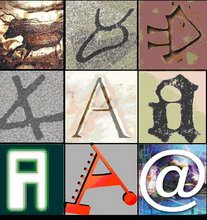A special issue of Journalism: Theory, Practice & Criticism
Newswork
Guest Editors: Mark Deuze, Department of Telecommunications at Indiana
University and Professor of Journalism and New Media at Leiden
University, and
Timothy Marjoribanks, School of Political Science, Criminology and
Sociology at the University of Melbourne
The work that journalists do is changing fast. The creation of content
in the global news industry takes place under increasingly precarious
and otherwise problematic conditions. In terms of audiences, reporters
and editors have to come to terms with those who Jay Rosen calls "The
People Formerly Known As The Audience" (TPFKATA) as co-producers of
news. Regarding content, Pablo Boczkowski, Michael Schudson and others
signal "news isomorphism" and "interinstitutional news coherence" as
the
industry digitizes and converges, as the reliance on agency feeds
grows,
and as journalists are expected to do more with less time and fewer
resources and colleagues.
But perhaps most crucially for the focus of this special issue, one has
to consider the changing contexts of news production. Consider for
example the 2006 labor market assessment by the International
Federation
of Journalists, reporting the rapid rise of so-called "atypical"
newswork - especially among younger reporters and newcomers in
journalism. Furthermore one has to consider the worldwide trend towards
outsourcing of "free labor" (Tiziana Terranova) to consumers under the
banner of "citizen journalism", and the massive loss of jobs and
flexibilisation of labor under conditions of the ongoing integration,
convergence and concentration of news operations and corporate
ownership. At the same time the industry is rapidly innovating its
approaches, practices, and management of news. Newspapers experiment
with online video, broadcasters build communities around their content
online, Web sensibilities creep into every aspect of the journalistic
process, and news providers increasingly include professionals and
amateurs of a bewildering variety of backgrounds.
In this special issue we call for papers that document, map, and
interrogate the changing conditions, professional and managerial
practices, and production contexts of newswork. We particularly welcome
paper proposals that include theoretically informed case studies,
ethnographies, interviews, and other up-close-and-personal
investigations of what changes in newswork (including but not limited
to
the changes outlined in this call for papers) mean to the practitioners
involved; how the professional identity of journalists is being
transformed, and how the current climate of newswork can be
historicized. Papers can focus on any media form(s), and on any local,
national or international context.
Interested authors can, in the first instance, submit a paper proposal
of 200-250 words to both editors mdeuze@indiana.edu and
tkmarj@unimelb.edu.au. Deadline for submission of full articles: 1
August 2008. Publication: 10(3), Spring 2009 issue.
This e-mail is confidential. If you are not the intended recipient you
must
not disclose or use the information contained within. If you have
received
it in error please return it to the sender via reply e-mail and delete
any
record of it from your system. The information contained within is not
the
opinion of Edith Cowan University in general and the University accepts
no
liability for the accuracy of the information provided.
CRICOS IPC 00279B
_______________________________________________
International Association for Media and Communication Research
Announcements mailing list
http://iamcr.org/mailman/listinfo/announcements_iamcr.org
http://www.iamcr.org
quinta-feira, 15 de novembro de 2007
Call for Papers of Journalism: Theory, Practice & Criticism
Assinar:
Postar comentários (Atom)


Nenhum comentário:
Postar um comentário